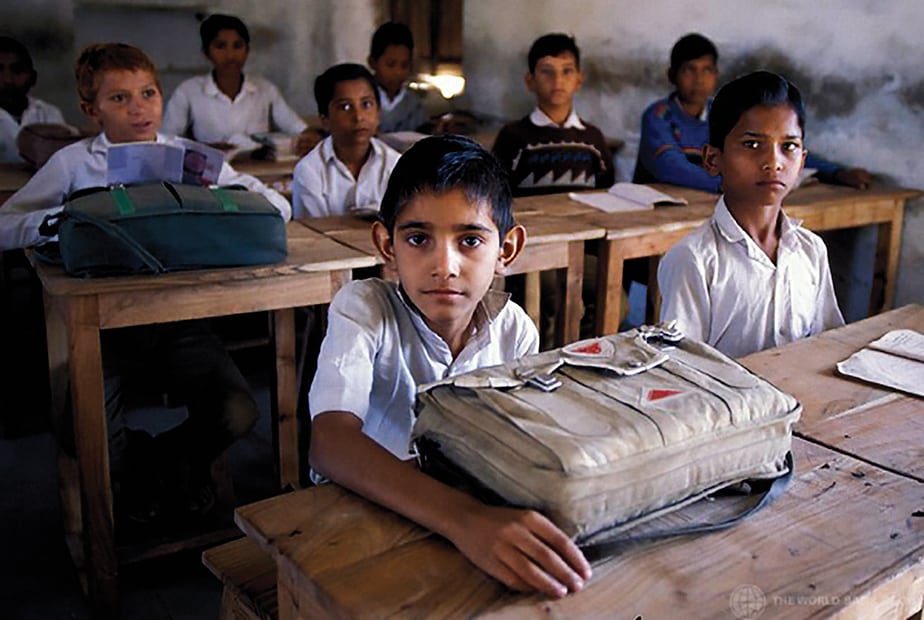Integration of economically weaker sections in private schools can benefit fee-paying children if teaching is made more effective
Being a single parent in a high-profile job, Malvika* says her children were well aware that they couldn’t get into trouble at school and have her called in during the week. “They were really supportive,” she says. But once her son’s maths teacher insisted on meeting her. Malvika was upset, and blunt.
“Teaching is your responsibility,” she told the teacher. “He’s in school till 4 pm. When he comes home, I’ll do what a mother is supposed to. Please find ways yourself to make him understand the concepts, make him practice, whatever!”
There are many parents who will agree with Malvika but may not deal with the situation with the same gumption. Most just hire tutors — for almost every subject — shown clearly by the mushrooming business of tuition over the years. And this is true not just for government and government aided schools, where teaching standards are considered low anyway, but equally true for private, unaided schools.
To a large extent, this indicates a failure of schools to teach effectively. How often do you have parents lamenting that their children don’t seem to follow what’s happening in the class – that they are forced to attend another school (a flurry of tuition classes) after school! Additionally, they are often spending as much on tuition as on the school fee itself!
As far back as 1999, development scholar Bagala P Biswal, in his paper ‘Private Tutoring and Public Corruption’ stated that private tuition is a result of poor teaching, low monitoring at the workplace, and a conscious effort to create a market for private tutoring or coaching. It is a corruption in the education delivery system, as tuitions require citizens to pay extra money for a free government service (or as in the case of private schools, paying extra for an already paid-for service).
The situation seems only to have exacerbated over the decades, with dependency on private tuition to improve performance sadly common even in the lower grades. According to a recent Assocham survey, close to a whopping 87% of primary school children and up to 95% in higher secondary attend private coaching classes.

Do parents have a choice? Not really.
“I pulled all strings possible to get my daughter admitted into a certain school in Class 6 because I thought it was the best, but I am shocked that I am seeking tuition for her already. She is trailing behind and not following what’s happening in the classroom. The teachers tell me not to worry but don’t explain what the problem is either! If this is the situation at this school, what must it be at other schools?” says Preeti.*
The demand for private schools has been mounting exponentially with steadily falling standards of government schools. It is further driven by a burgeoning middle class, as well as a much more aspirational working class, who want their children to move into skilled jobs.
However, the growth in the number of schools has not been commensurate – scoring a clear advantage for private schools. The 2017 film Hindi Medium was honest in capturing the desperation of parents trying all means fair and false to gain admission into schools perceived as good English-medium ones.
“My husband and I bargained at Rs 4.5 lakh with the school to secure my son’s admission in 2009. We were desperate, the school has a good reputation, it was close to our home, and it was so difficult to even get through the gates of schools in Delhi anyway,” shares Anjali.*
Yet, this boom in demand, instead of making elite, private schools sharper and upgrading their teaching strategies, seems to have made them complacent. Is it surprising then that these schools, that should have been better prepared than others to manage and support a child’s learning without additional support, are the ones most rattled by the 25% EWS quota ‘imposed’ by the Delhi government in 2009 following a PIL in court?
Though Delhi government reimburses upto Rs 24,000 per annum for EWS children in private schools, there is no doubt that schools find a significant part of their earnings shaved off. But having reaped the benefit of high fees and low taxes over the years, to say nothing of generous ‘donations’, are elite private schools really that dangerously low on resources? And did the intangible benefits of socio-economically inclusive classrooms, hailed highly around the world, not persuade educational institutions to find ways to actively promote this anyway, even without a ‘law’?
“Research shows that schools that work on integrating students across class boundaries do better on academic outcomes, social-emotional development, and have a more positive social climate,” says Hera Shakil, Senior Associate with Indus Action, an NGO working in the area of education policy implementation.
She adds, “With empathy and conflict resolution being hailed as key skills for the 21st century by several educationists, it’s high time that Indian schools and parents start aspiring for desegregated and diverse schools in order to help their children build these key skills.”
The seminal study ‘Familiarity Does Not Breed Contempt: Generosity, Discrimination and Diversity in Delhi Schools’ conducted recently by Harvard-based Gautam Rao clearly supports this view as well. It establishes that impacts on rich students’ academic achievement after the EWS induction are modest with rich psycho-social dividends. The study finds that poor classmates make rich students more prosocial, generous and egalitarian; less likely to discriminate against poor students, and more willing to socialize with them.
Basically, integration promoted all the qualities we want to nurture in our children, and future citizens!
So, what are the cons of EWS induction into elite schools?
That the schools will have to work harder at their jobs!
The EWS children will not have the same access to private and home tuitions, and their progress will be a clear, unadulterated indication of the school’s efforts. The success or failure of EWS children will more tellingly expose the effective or inept ways of teaching.
“You know we do everything we can but then the EWS children just don’t get it after a point,” sighs the administrator of an elite private Delhi school that is chafing under the EWS ruling.
Arpita disagrees. She is helping some EWS children studying in an elite school, and points out the indifferent ‘remedial’ work being done with them in their school. “It’s all on paper, the commitment and engagement required to make each child understand is not there,” she claims.
That’s possibly because the teaching is not keeping the child at the heart of the learning process. It is based on theoretical, sterile lesson plans that a few children get and most don’t, who then seek tutors out for help.
This is not to say that teachers are lazy (though some parents disagree vehemently!), just that their time is perhaps not being utilised more effectively.
So, smart sense would dictate that full fee paying parents, who are genuinely keen for active learning to happen inside the classrooms, should support EWS children studying with their children, and carefully track their progress.
Because then, chances are that the efforts to make the EWS children ‘get it’ will positively impact the learning of the entire classroom. This will save fee-paying parents the tuition time and money to pursue other higher-level activities, like horse-riding and golf, for instance!
* Names changed to protect identities





